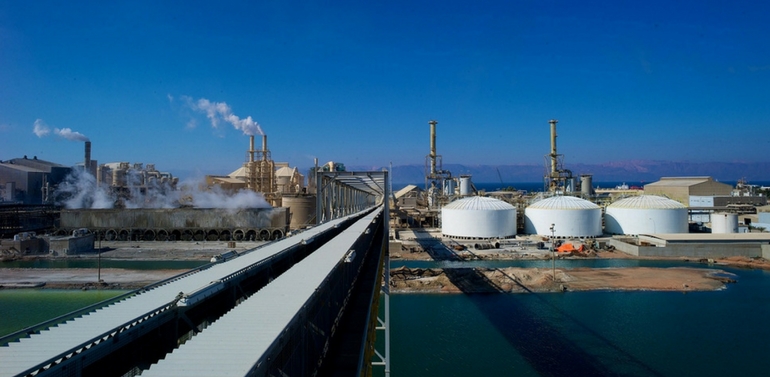GCC
Abu Dhabi Fund for Development Finances 31 Projects in Jordan Worth AED5.7 Billion

[rev_slider alias=”Abu Dhabi Fund”]
In a report issued by Abu Dhabi Fund for Development (ADFD) to mark Jordan’s 71st Independence Day, the Fund announced that by end-2016, it provided financing for 31 development projects with a cumulative value of AED5.7 billion through government grants and concessionary loans. The projects covered several sectors, namely mining, water and irrigation, transport, housing, agriculture, energy, education and healthcare.
ADFD manages the US$1.25 billion (AED4.6 billion) UAE government contribution to the Gulf Development Fund, a five-year grant programme of the Gulf Cooperation Council (GCC) to finance development projects in line with the Jordanian government’s strategic objectives. The end of 2016 marked the successful distribution of AED4.459 billion.
The following is a summary of the most prominent projects administered by ADFD as part of the US$1.25 billion (AED4.6 billion) UAE grant to the Gulf Development Fund programme for Jordan (2012-2017):
Tumour Treatment Centre: Aiming to boost medical tourism in Jordan, the US$16.3 million centre will provide specialised medical services and tumour treatment. ADFD is financing the construction of the four-storey building with a 150-bed ward and support facilities as well as medical equipment. The centre is 60 per cent complete and is set to open doors by 2018.
King Hussein Cancer Centre: ADFD is funding the US$25 million expansion works that will increase the receiving capacity centre. The King Hussein Cancer Centre boasts state-of-the-art medical equipment, employs 200 oncologists and consultants, and treats about 3,500 patients annually. The project is scheduled for completion by end-2017.
King Hussein Medical City: ADFD has contributed about US$200 million to fund the first phase of the expansion works of King Hussein Medical City – the construction of a state-of-the-art 940-bed hospital with a capacity of 1,200 patients a day. The Fund has recently signed on a contractor and developer for the project.
Building New Schools: The US$34 million project aims to build 85 new schools featuring modern science laboratories and advanced educational equipment to cater to the growing number of students and enhance the education sector in Jordan. With many of the schools already constructed, the project is slated for completion by end-2017.
Rehabilitation of Irrigation Systems: The US$17 million project to increase the efficiency of irrigation systems and water conservation has now been completed. The works included the replacement of calcified pipes as well as the construction of walls and an underground drainage system for protection from floods.
Dams: The US$49 million project comprises the construction of two concrete dams – Zarqa-Ma’een and Kufranjah. Its main goal is to optimise the use of rainwater, meet the growing demand for drinking and irrigation water, and improve water output and transfer in line with industry standards. Works on Zarqa-Ma’een Dam are 76 per cent complete, whereas Kufranjah Dam has been operational since January 2017.
Advancing Technical Education in Community Colleges: Now successfully wrapped up, the US$9 million initiative has enhanced the receiving capacity of community colleges, expanded their technical and applied science education programmes, and equipped laboratories and workshops with the latest technologies.
Renewable Energy Project: The four-phase project valued at US$150 million comprises the construction of an environment-friendly solar photovoltaic power plant in Al Quweira region that will take place from September to December 2017. Once connected to the national grid, the plant will generate 100 megawatts of energy.
Petroleum Storage Facilities: The US$210 million project will provide storage units to maintain a reserve of petroleum products sufficient for 60 days of domestic consumption across Jordan, enhancing oil security and infrastructure in the country. The facilities will comprise floating-roof reservoirs with the capacity to store 8,000 tonnes of liquefied petroleum gas as well as 250,000 to 300,000 tonnes of petroleum derivatives – diesel, gasoline and jet fuel. The project is scheduled for completion in September 2017.
LPG Terminal: The US$33 million project that aims to meet Jordan’s liquefied petroleum gas (LPG) needs has now been completed. Ensuring the continuity of gas and electricity supply in the country, the terminal enables the port to receive large oil tankers with a capacity of 25,000 tonnes and discharging 300m3 of LPG per hour.
-

 Insurance2 months ago
Insurance2 months agoSupporting Community Wellness: Liva Insurance Sponsors Muscat Marathon 2026 with Free Health Checkups
-

 News2 months ago
News2 months agoAI Security Conference 2025 Hosted by Securado Highlights the Changing Cybersecurity Landscape
-

 Interviews1 month ago
Interviews1 month agoEXCLUSIVE INTERVIEW: TLS Rebranding Marks Strategic Leap Toward Innovation, Sustainability & Growth
-

 Dossier1 week ago
Dossier1 week agoDossier, 2026
-

 Insurance1 month ago
Insurance1 month agoLiva Insurance Supports Community Wellness Through “Experience Oman – Muscat Marathon 2026”
-

 Investment3 weeks ago
Investment3 weeks agoLalan Inaugurates Its First Overseas Manufacturing Facility, Marking Sri Lanka’s First Investment in SOHAR Freezone
-

 Banking & Finance1 week ago
Banking & Finance1 week agoNational Finance Unveils Exclusive Ramadan Offers on Auto Financing
-

 Food & Dining3 weeks ago
Food & Dining3 weeks agoGrand Millennium Muscat’s exclusive Ramadan Iftar and Suhoor Experiences





























You must be logged in to post a comment Login